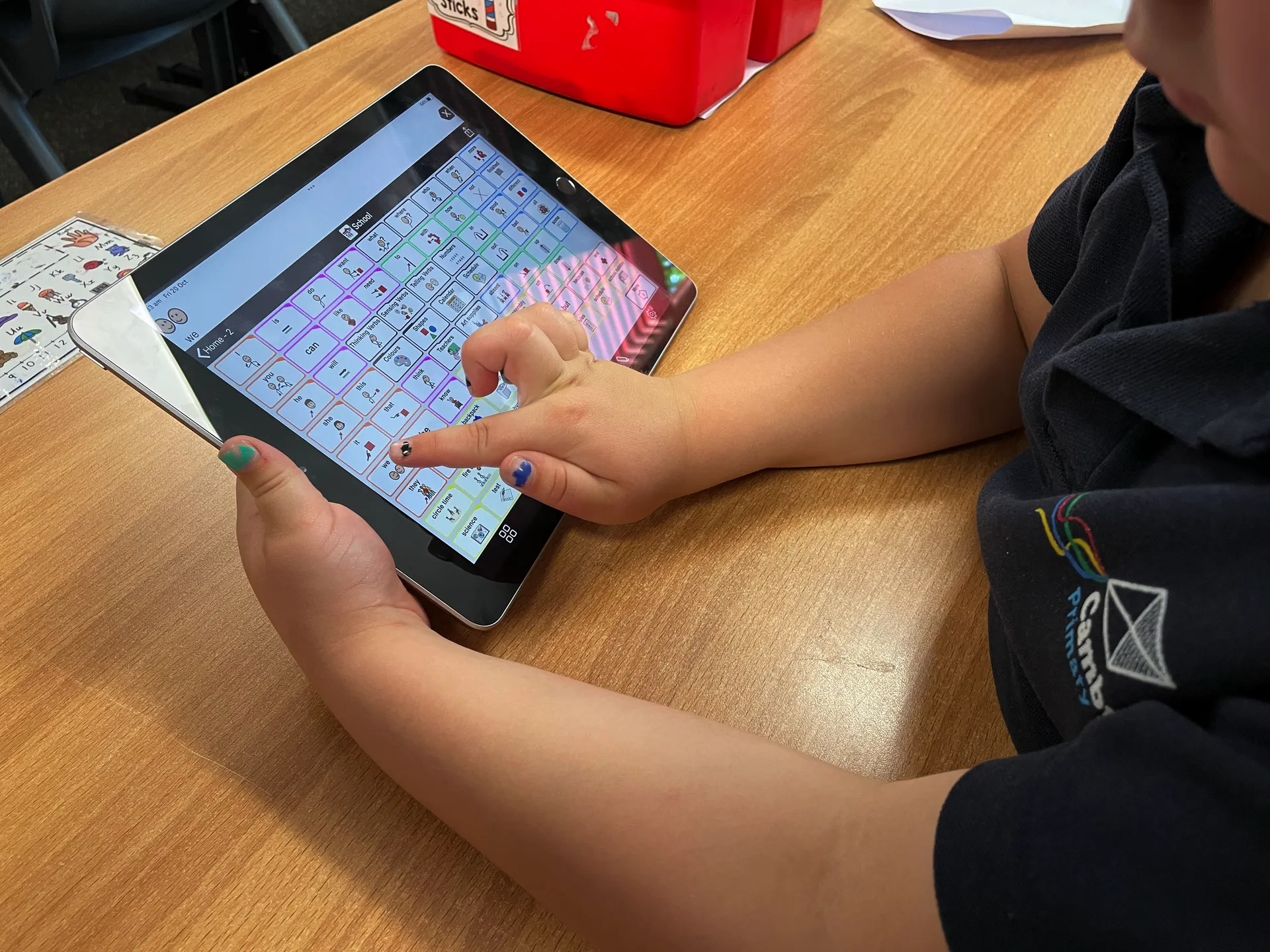Wellbeing
Cambridge PS aims to provide a stimulating, supportive and caring environment. The school acknowledges and celebrates individuality by having a positive view of the uniqueness of the learner while focusing on individual growth and the fostering of talents.
The school implements a diverse range of programs to support student engagement, school attendance and Growth Mindset.
We encourage our families to utilise and explore the online resources below. The resources can support our Cambridge PS families and students.
We are always here to support our Cambridge PS families.
Attendance
ENSURING EVERY DAY COUNTS
Regular attendance is crucial for students to thrive socially and developmentally. School attendance is key to:
- Maximizing Life Opportunities: Building strong educational foundations and support networks.
- Developing Essential Skills and Values: Preparing students for lifelong learning and community participation.
- Enhancing Future Prospects: Improving health, employment opportunities, and income potential
- Completing Year 12 or Equivalent
Unexplained absences and late arrivals must be explained by families each term.
HOW WE TRACK ATTENDANCE
- Regular Monitoring: Attendance is reviewed in cycles by the wellbeing team, focusing on students with attendance below a certain percentage.
- Teacher Follow-Up: Classroom teachers follow up after two days of absence.
- Parental Notification: A letter is sent to parents if attendance falls below the threshold by the end of a cycle.
- Attendance Meetings: If attendance does not improve, a meeting with the family is requested by the wellbeing team.
- Involving Community Services: If necessary, community services may be engaged.
‘LATE’ MATTERS TOO
At Cambridge Primary School, gates open and the yard is supervised from 8:35 am, music plays and then the bell rings at 8:45am when students are required to be at the classroom ready to begin their day. Students who arrive after the music are given a late pass as they enter the school.
Being on time is essential for a student’s education. Even occasional lateness can negatively affect academic performance, social development, and overall well-being.
Impacts of Late Arrivals:
- Missed Instruction: Missing important opening instructions and the start of lessons can lead to gaps in understanding.
- Lower Grades: Frequent tardiness is linked to lower academic performance and test scores.
- Classroom Disruption: Late arrivals disrupt the classroom, affecting both the late student and their peers.
- Increased Stress: Rushing to school can increase stress and anxiety.
- Peer Relationships: Missing the beginning of the day affects social interactions and bonding opportunities.
- Self-Esteem: Frequent tardiness can negatively impact self-esteem and confidence.
- Engagement: Punctual students are more likely to be engaged and participate in school activities, fostering a sense of belonging.
Being late to school can significantly impact neurodiverse students by increasing their stress and anxiety, disrupting their routines, and making it harder for them to focus and learn effectively once they arrive.
Statistics on Lateness:
- 5 Minutes Late Each Morning: Equals missing 3 days of learning per year, and over 43 days by the end of schooling.
- 15 Minutes Late Each Morning: Equals missing 10 days of learning per year, and over 4 months of school by the end of Year 12.
Please note: all unexplained absences and late arrivals must be explained by families
WE ARE HERE TO HELP
If attendance or punctuality is an issue, we are here to help. Ensuring regular attendance is a shared responsibility between parents, students, and the school community. We are committed to working with families to adhere to the school Attendance Policy.
Please reach out to us for support at any time.
Social Emotional Learning (SEL)
WHAT IS SEL?
SEL is the process through which students develop and apply the knowledge and skills necessary to:
- understand and manage their emotions
- set and achieve positive goals
- understand and show empathy for others
- establish and maintain positive respectful relationships
In other words – Be a good human.
WHAT IS TAUGHT IN SEL?
We teach the Rights Resilience and Respectful Relationships (RRRR) topics to build student understanding of key skills and strategies. We use the Rights Resilience and Respectful Relationships (RRRR) learning materials developed by a team at University of Melbourne as evidenced based lessons to further strengthen the teaching of our school values. These resources promote social and emotional skills along with positive gender norms in young people.
These lessons may be delivered as stand alone lessons of SEL or can be incorporated into Inquiry, Reading or Writing lessons throughout the year. We also explicitly teach The ones of Regulation and Consent Education as well as lessons about how to be safe and respectful online.
This is assessed and reported on as part of all student’s school reports.
WHAT DOES SEL LINK TO?
To ensure SEL is practical and linked with real life we incorporate a wide range of associated days / events, lessons and celebrations as part of this work including:
- National Day of Action Against Bullying and Violence (NDAABV)
- Harmony Day
- Remembrance Day
- R U Ok Day
- Cultural Celebration Days
- World Mental Health Day
- Neuro Divergent Week
- Suicide Prevention Day
- Reconciliation/NAIDOC Week
External Provider Resources
CatholicCare Victoria
Engaging Wyndham Families brochure
Engaging Wyndham Families referral form
Disability Inclusion
At Cambridge PS we are committed to fostering an inclusive environment where every student can thrive. Through the Disability Inclusion initiative, we are implementing targeted strategies and programs to ensure that students with additional needs are supported academically, socially, and emotionally.
Our Disability Inclusion journey is a testament to our belief in every student’s potential and our dedication to creating an equitable and supportive learning environment.
For more information or to get involved, please contact us at [email protected]




























